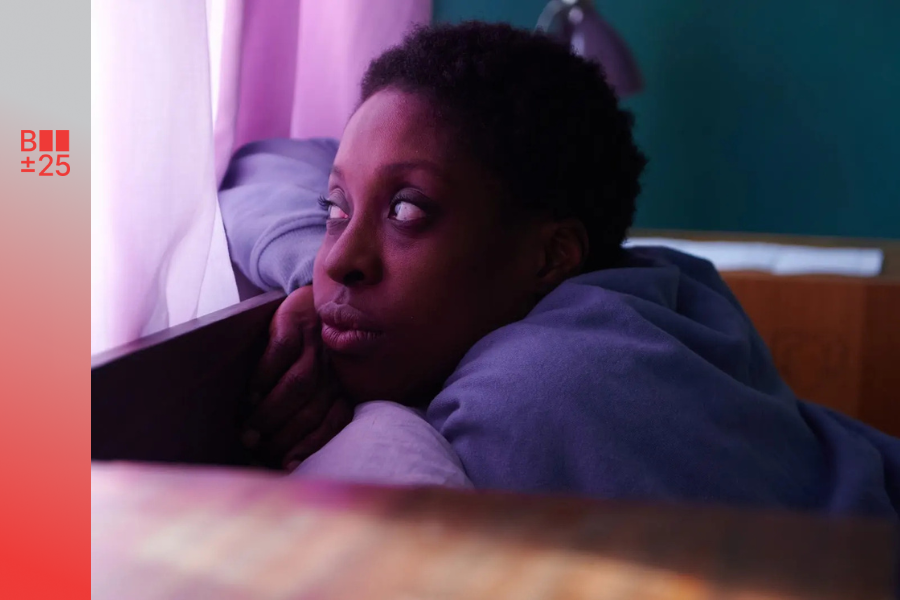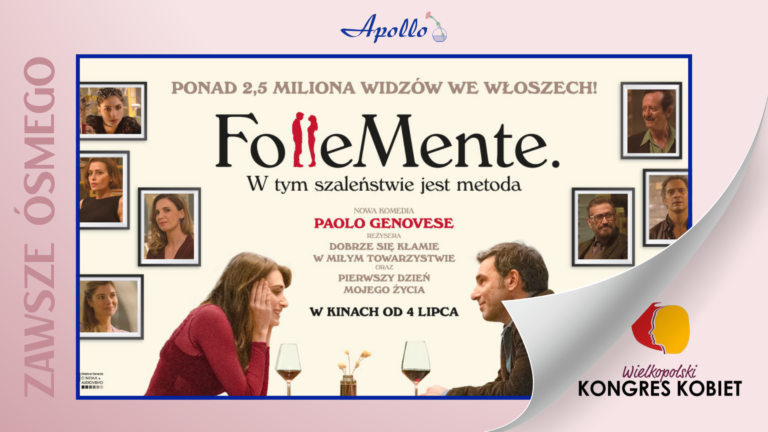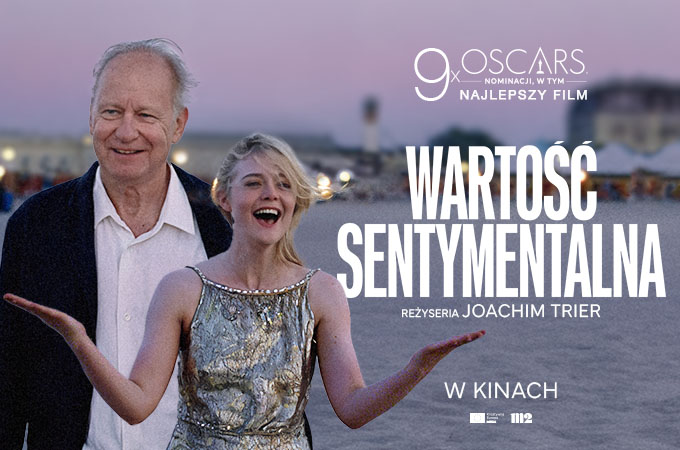

Oniryczny film Joy Gharoro-Akpojotor mierzy się z niechlubną polityką antyimigracyjną Wielkiej Brytanii. Od początku swojej kariery filmowej, Joy skupiała się na produkcjach osób czarnych, queerowych i kobiet, które otoczyła swoją opieką za pośrednictwem firmy Joi Productions. Po 11-letnim doświadczeniu produkcyjnym, wyreżyserowała film krótkometrażowy FOR LOVE, nominowany w 2021 do nagrody festiwalu filmowego BFI London. Dzięki wsparciu BBC Film zrealizowała DREAMERS, bardzo osobisty debiut pełnometrażowy o kobiecie z Nigerii czekającej na decyzję o azylu w Wielkiej Brytanii. Jej film walczył w tym roku o queerową nagrodę Teddy na Berlinale.
Joy przenosi widownię do angielskiego ośrodka deportacyjnego, do którego trafia Isio (Ronkẹ Adékoluẹjo), młoda lesbijka pozbawiona możliwości życia w zgodzie ze swoją seksualnością w Nigerii. Choć urzędnicy wydają się uprzejmi, przebywa w przytulnym pokoju i ma nawet okazję uczęszczać na zajęcia ze sztuki, to szybko orientuje się, że to tylko fasada. Iluzja pomocniczości i nadziei zostaje szybko rozwiana, a Isio orientuje się, że trafiła do środowiska więziennego, w którym zdesperowane imigrantki zakładają gangi, doświadczają przemocy i upokorzeń, są regularnie nadzorowane, a te oporne trafiają do izolatki. Odnajduje wsparcie u Farah (Ann Akinjirin), która uczy ją jak sprawiać tylko pozory pozbawionej sprawczości, a także aby nie pozwoliła odebrać sobie radość z życia i przekonanie, że nie zasługuje na miłość. Między kobietami rodzi się płomienny romans, dlatego muszą podjąć decyzję: konformistycznie zawierzyć prawnemu przyznaniu azylu wykrwawiającego je z nadziei czy stworzyć własną drogę ucieczki.
„Wolność zaczyna się w umyśle”, pada w dialogu bohaterek, niczym manifest, który przyświeca reżyserce w prowadzeniu narracji. Gharoro-Akpojotor, korzystając z pięknego oświetlenia, sięga do sfery podświadomości i snów, aby opowiadać o lękach i marzeniach. Jednocześnie w tej poetyckości humanizuje doświadczenie imigranckie, które widzi jako polifonię – rozmaite historie kobiet, które uciekają przed horrorem rzeczywistości, zanurzone w różnych kontekstach kulturowych.
ENG
Joy Gharoro-Akpojotor’s dreamlike feature tackles Britain’s shameful anti-immigration policies. From the very beginning of her film career, Joy has championed Black, queer and female voices through her company, Joi Productions. After 11 years of production experience, she directed the short film FOR LOVE, nominated for the 2021 BFI London Film Festival award. With the support of BBC Film, she made DREAMERS, a very personal feature debut about a Nigerian woman awaiting an asylum decision in the UK. Her film competed for the queer Teddy Award at this year’s Berlinale.
Joy transports the audience to an English deportation centre, where Isio (Ronkẹ Adékoluẹjo), a young lesbian unable to live in accordance with her sexuality in Nigeria, ends up. Although the staff seem polite, her room is cosy, and she’s even offered art classes, it soon becomes clear that this is all a fake. The illusion of care and hope quickly evaporates as Isio realises she’s effectively imprisoned in a place where desperate women immigrants form gangs, endure violence and humiliation, and live under constant surveillance – with those who resist being sent into solitary confinement.
Isio finds solace in Farah (Ann Akinjirin), who teaches her how to appear powerless and not to let anyone take away her joy of life and her belief that she does not deserve love. A passionate romance blossoms between the women, forcing them to make a decision: conform and trust the legal asylum process that is bleeding them dry of hope, or create their own escape route.
“Freedom begins in the mind,” says one of the characters, like a manifesto that guides the director in her narrative. Gharoro-Akpojotor uses luminous lighting and dreamlike imagery to explore the subconscious realms of fear and desire. At the same time, her poetic approach humanises the migrant experience, portraying it as a polyphony of stories – the diverse stories of women fleeing the horror of reality, immersed in different cultural contexts.
Ta historia sprawi, że nabierzecie wiatru w żagle! Dziewczyny z „Maiden” mają wyjątkowy dar przekonywania, że w życiu da się pokonać wszelkie uprzedzenia i przesunąć każde granice. Trzymający w napięciu jak dreszczowiec, ten znakomity dokument jest opowieścią o kobietach, które chciały całego życia. O ich determinacji, sile i marzeniach, których nie zatrzymała potężna fala niechęci.
W 1989 roku grupa upartych, odważnych, niezależnych dziewczyn stworzyła pierwszą w historii kobiecą załogę startującą w super prestiżowych i ekstremalnie niebezpiecznych regatach Whitbread Round the World Race. Zgromadziła je na jachcie „Maiden” Tracy Edwards: buntowniczka i uciekinierka z domu. „Dziewczyny na morzu to same problemy”. „Dziewczyny na statkach nadają się wyłącznie do kuchni” – słyszała od początku swojej wielkiej przygody z żeglowaniem. Walczyła więc nie tylko z groźnym żywiołem, ale także z lekceważeniem i pogardą. „Gdybym uwierzyła w to, co o mnie mówili, nigdy nie byłabym tu, gdzie jestem” – mówi po latach. „Nie chciałyśmy zwykłej pracy, tylko przygody!” – dodają jej koleżanki. Fascynujące biografie kobiet, które przetarły szlak kolejnym pokoleniom buntowniczek, z pewnością zainspirują współczesne poszukiwaczki przygód: dzielne córki i odważne matki.
Pasjonujący, emocjonujący, jak najlepsza sportowa rozgrywka; a przy tym dostarczający potężnej dawki wzruszeń, film „Maiden” Alexa Holmesa dowodzi, że dla Tracy Edwards i pozostałych dziewczyn był to naprawdę wyścig o wszystko: o szacunek, uznanie, o należne kobietom miejsce – nie tylko w sporcie. Przeciwnikiem groźniejszym od oceanu (który stale “próbuje cię zabić”), są bowiem wszyscy ci, którzy wmawiają kobietom, że nie potrafią, że nie dadzą rady, że się nie nadają. A ocean? Dla kobiet jest po prostu wolnością.
Co kryje się w naszych myślach? Kto tak naprawdę mieszka w naszej głowie? Osoba szalona, romantyczna, namiętna, rozważna? A może w naszym umyśle panuje niezły tłok? O międzyludzkich relacjach oraz o tym, co w nas siedzi, w swoim nowym filmie opowiada twórca wielkiego hitu „Dobrze się kłamie w miłym towarzystwie” Paolo Genovese.
Bohaterami filmu są Piero i Lara. Ich pierwsza randka wywołuje u obojga zrozumiały stres. Oboje chcieliby pokazać się z jak najlepszej strony i uniknąć wpadek, o które w zdenerwowaniu nie trudno, ale też i poznać myśli i wyczuć pragnienia drugiej osoby.
Trzydziestoletnia Cécile (w tej roli francuska piosenkarka Juliette Armanet) to
ceniona szefowa kuchni, która stoi u progu spełnienia marzenia, jakim jest otwarcie
własnej restauracji. Problemy zdrowotne ojca, Gérarda (François Rollin), zmuszają
ją jednak do odłożenia planów i powrotu do rodzinnego miasteczka. W tym miejscu czas płynie zupełnie inaczej niż w paryskiej metropolii, pozwalając jej przemyśleć życiowe wybory i zastanowić się nad tym, jak chciałaby, żeby wyglądała jej najbliższa przyszłość. Do Cécile wracają młodzieńcze wspomnienia, zwłaszcza gdy odnawia
znajomość ze swoją dawną miłością Raphaëlem (Bastien Bouillon).
Debiut Francuzki Amélie Bonnin to oryginalne połączenie filmu muzycznego, kina kulinarnego z
ciepłym, rodzinnym komediodramatem. Film jest rozwinięciem krótkiego metrażu z 2021 roku,
za który Bonnin nagrodzona została Cezarem. „Przepis na szczęście” zapisał się w historii
festiwalu w Cannes, gdyż po raz pierwszy film debiutującej reżyserki wybrano na otwarcie tej
prestiżowej imprezy.
Reżyseria Amélie Bonnin
Nominowany do dziewięciu Oscarów najnowszy film Joachima Triera, reżysera „Najgorszego człowieka na świecie”, z nominowanymi do Oscara w kategoriach aktorskich Renate Reinsve, Stellanem Skarsgårdem, Ingą Ibsdotter Lilleaas i Elle Fanning w rolach głównych. Jeden z najczęściej nagradzanych i najważniejszych filmów tego roku, z muzyką skomponowaną przez polską kompozytorkę Hanię Rani.
Siostry Nora (Renate Reinsve) i Agnes (Inga Ibsdotter Lilleaas) spotykają się ze swoim dawno niewidzianym ojcem, charyzmatycznym, niegdyś wielkim reżyserem filmowym Gustavem (Stellan Skarsgård). Proponuje on Norze, aktorce teatralnej, rolę w swoim najnowszym filmie, który ma być jego powrotem do świata filmu. Gdy dziewczyna odrzuca propozycję, ten zatrudnia młodą gwiazdę Hollywood (Elle Fanning). Teraz siostry muszą poradzić sobie nie tylko ze swoją skomplikowaną sytuacją z ojcem, ale też z amerykańską gwiazdą, która zmienia ich rodzinną dynamikę.
Poruszająca i pełna humoru opowieść, która złamie serce, zanim znów je poskłada - Elle
tytuł oryginalny: Affeksjonsverdi
reżyseria: Joachim Trier



